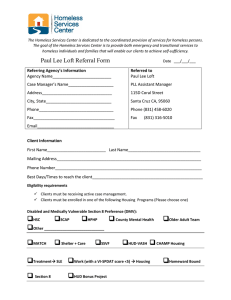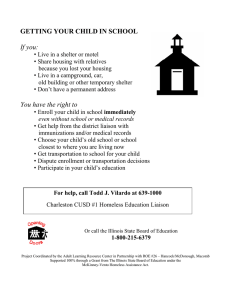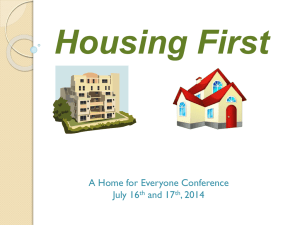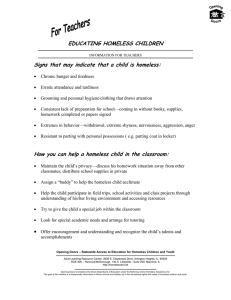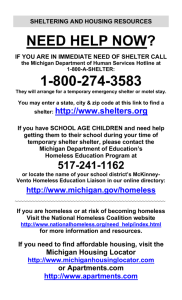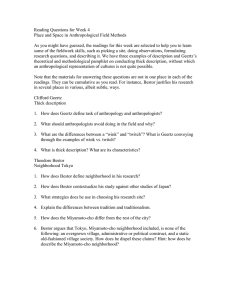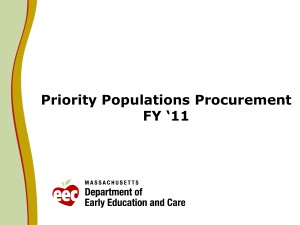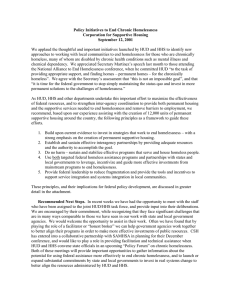MORE THAN SHELTER! Charlotte-Mecklenburg’s Ten-Year Implementation Plan Guiding Principles
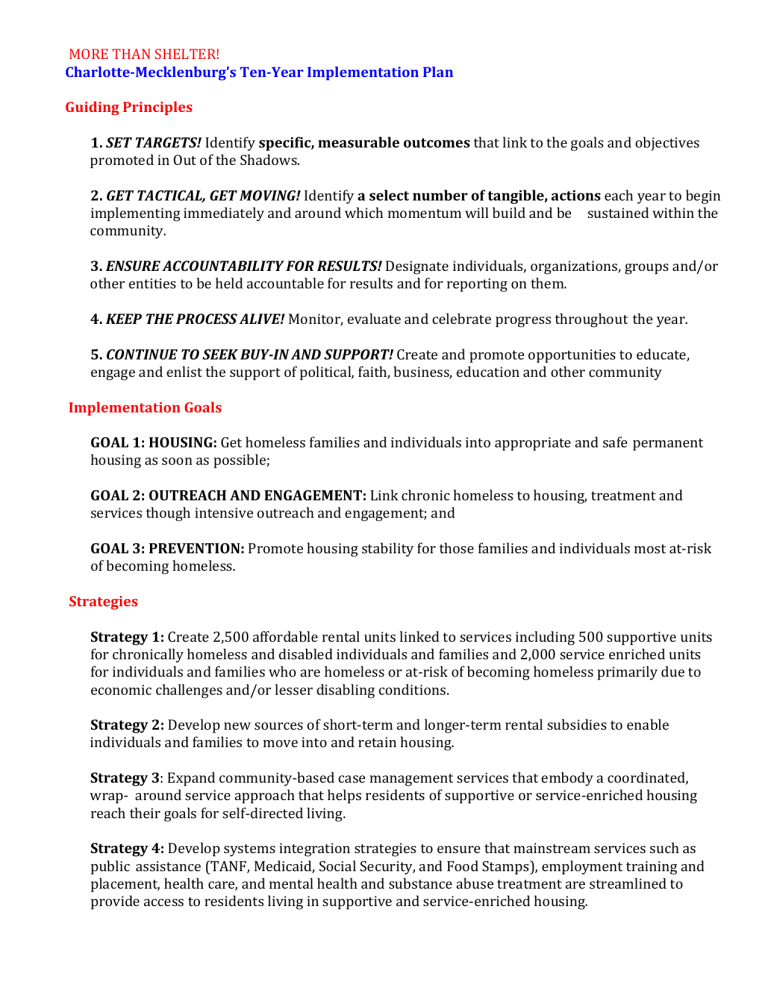
MORE THAN SHELTER!
Charlotte-Mecklenburg’s Ten-Year Implementation Plan
Guiding Principles
1. SET TARGETS! Identify specific, measurable outcomes that link to the goals and objectives promoted in Out of the Shadows.
2. GET TACTICAL, GET MOVING! Identify a select number of tangible, actions each year to begin implementing immediately and around which momentum will build and be sustained within the community.
3. ENSURE ACCOUNTABILITY FOR RESULTS! Designate individuals, organizations, groups and/or other entities to be held accountable for results and for reporting on them.
4. KEEP THE PROCESS ALIVE! Monitor, evaluate and celebrate progress throughout the year.
5. CONTINUE TO SEEK BUY-IN AND SUPPORT! Create and promote opportunities to educate, engage and enlist the support of political, faith, business, education and other community
Implementation Goals
GOAL 1: HOUSING: Get homeless families and individuals into appropriate and safe permanent housing as soon as possible;
GOAL 2: OUTREACH AND ENGAGEMENT: Link chronic homeless to housing, treatment and services though intensive outreach and engagement; and
GOAL 3: PREVENTION: Promote housing stability for those families and individuals most at-risk of becoming homeless.
Strategies
Strategy 1: Create 2,500 affordable rental units linked to services including 500 supportive units for chronically homeless and disabled individuals and families and 2,000 service enriched units for individuals and families who are homeless or at-risk of becoming homeless primarily due to economic challenges and/or lesser disabling conditions.
Strategy 2: Develop new sources of short-term and longer-term rental subsidies to enable individuals and families to move into and retain housing.
Strategy 3: Expand community-based case management services that embody a coordinated, wrap- around service approach that helps residents of supportive or service-enriched housing reach their goals for self-directed living.
Strategy 4: Develop systems integration strategies to ensure that mainstream services such as public assistance (TANF, Medicaid, Social Security, and Food Stamps), employment training and placement, health care, and mental health and substance abuse treatment are streamlined to provide access to residents living in supportive and service-enriched housing.
Strategy 5: Incorporate housing assistance centers and rapid re-housing strategies into the overall homeless support system, which will help link those experiencing homelessness to both housing and the associated services they require on an individual assessment-driven, case management, contractual basis.
Strategy 6: Develop and implement a transition or conversion framework for gradually shifting resources currently being devoted to the shelter system to the new housing based model.
http://charmeck.org/city/charlotte/nbs/housing/housingcoalition/Documents/10YearPlantoEn dandPreventHomelessness.pdf


